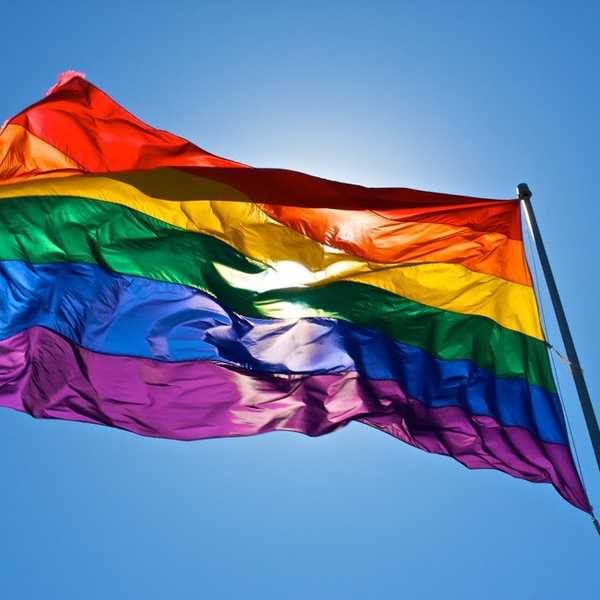During the Christmas break of my first year of college, I started making plans with a group of about 10 of my high school friends to go to a gay bar. Many of us had not been out during high school and were all excited to go out together as a big, queer group. I found myself talking about these plans with one of my straight, cisgender friends. I realized I was talking about plans with other people, so I invited her:“I don’t know how much interest you’d have in going to a gay club, but you can come if you want!” Focusing on the road, she grimaced and said, “Why can’t we go to a normal club, so we can all enjoy it?” I paused for a moment before saying, “You know that a ‘normal’ club is a straight club, right?”
A club is a straight club. A dance is a straight dance. A movie is a straight movie. The reason for this is that to be anything other than straight in those spaces, you have to go against the current. The expectation and assumption immediately thrust upon you in most "normal" spaces is that you are straight.
Two summers ago, I decided to conduct an experiment to test just how heteronormative my school was. Although I had been out for almost three years, I decided, not to closet myself per se, but not to out myself either. I decided that, apart from wearing my rainbow bracelet, I would not give any indication of my sexuality in conversation. Whenever someone asked me if I had a girlfriend, if there were any girls in my life or if any girls that interested me, etc. I would simply say, “No.” If, however, someone asked me if I had a person in my life, or a girlfriend or boyfriend I would tell them the truth and say yes. My logic for the experiment was that the first question erased the possibility of my being gay. The second question left room for my identity.
Even of the best-intentioned, closest friends I had during that summer program, only one passed my test and figured out my sexuality before the last night. And by "figured out my sexuality," I mean they left the space open for my sexuality. In that time, one of my friends tried to set me up with a girl at a dance, which I appreciated as the best of intentions though it actually ended up making me feel pretty uncomfortable. When my friend who had figured out my sexuality (by asking the right questions) told my friend who set me up with a girl that I was gay, he refused to believe it at first. Not in a homophobic way. He just said something along the lines of “Edward? No, I don’t think so. What makes you think he’s gay?” My response: what makes you think I’m straight? It’s funny how my friend needed evidence to believe that I was gay but no evidence whatsoever to assume that I was straight; I was straight by default.
So many people have asked me why we have to have gay spaces, why do we have to divide off? Why can’t we all just get along and not judge each other. My response to them is pretty universal: that would be ideal, but mixed spaces are so often designed around heteronormativity. They are not mixed —
they are straight, even when they are tolerant. It doesn’t suffice to have a space where I won’t be judged for being gay. A truly neutral space needs to be a space that does not put a default identity on me that is not mine. A neutral space can’t assume I’m straight.Since becoming aware of these every day erasures of my sexuality, there are statements and attitudes I’ve become less tolerant of. So many straight people invite me to bars but never want to go to gay clubs. They somehow think it’s an unfair ask or that I am excluding them by going to a gay club. This irks me because I spend most of my time in straight spaces. Are gay spaces really so offensive that straight people can’t be in them? Why is it okay for you to be “uncomfortable” going to any of my spaces but expect me to accompany you to yours?
I experience a similar pseudo-neutrality in regards to films. I have friends who, when I invite them to watch a movie with me, respond that they have no interest in watching a “gay” movie with me, but would be happy to watch anything else. As if only gay people can appreciate films about gay people but, naturally, everyone can appreciate films about straight people. I swear, the next time I invite someone out, I’m going to “forget” to mention it's a gay club or movie just to make the point that gay clubs and movies are just as “normal” as straight ones.
*Note: In this article I separate only gay spaces from straight ones. It is important also to be cognizant that there are many other assumptions in most mixed space related to gender, race, wealth and all other aspects of identity.





















